The NaPA farms
Kraichgauer Güterverwaltungen KG
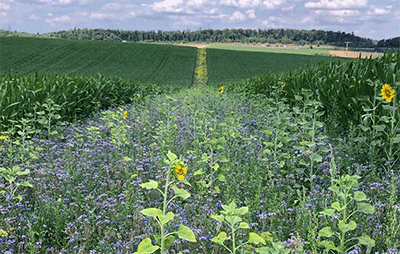
Michael Freiherr von Gemmingen is one of the three managing directors at Kraichgauer Güterverwaltungen KG, an amalgamation of the farms of three Kraichgau families that have been practicing agriculture and forestry in the region for over 800 years. The farm practices modern, conventional farming on 1400 hectares of arable land, giving top priority to sustainability and preservation of economic dispositions. Sustainable and resource-conserving cultivation is ensured through precision farming, state-of-the-art technology, and intelligently laid flower strips, while maintaining high productivity.
For further information, visit http://gueterverwaltungen.de.
Haslachhof - Familie Wiggert
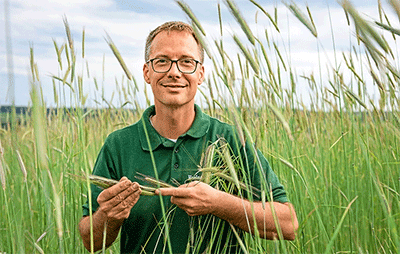
Wolfram Wiggert, the owner and farm manager of Haslachhof, a family farm located in the Breisgau-Hochschwarzwald district, prioritizes circular farming on the mixed farm. He has been managing the farm ecologically for more than 20 years. Wiggert's philosophy includes intelligently coordinating arable farming, suckler cow husbandry, and energy production, along with implementing a variety of measures for climate and biodiversity protection. The Haslachhof is a showcase farm for nature-positive management, thanks to Wiggert's intensive public relations work, regional marketing of food, humus certificates, and flower sponsorships.
For further information, visit www.haslachhof.de.
Brandhof
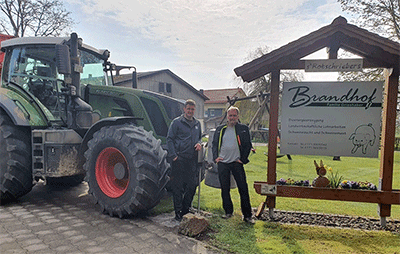
Klaus Grieshaber and his son Bernd manage the conventionally operated mixed farm, the Brandhof, in the Black Forest-Baar district, which produces piglets, fattens pigs, practices arable farming, and generates bioenergy. The modern and innovative farm has been actively participating in field trials and research for years, constantly striving to develop its sustainability practices. For example, they supply their pigs with homegrown feed and exclusively market their products regionally through Edeka. Moreover, they promote biodiversity and soil health by cultivating clover grass and planting flowering strips on their farm.
Haus Baden
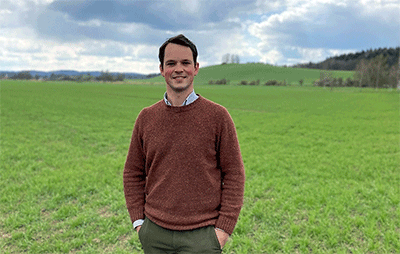
Roman Strasser, the farm manager of the Haus Baden farm, which spans over 750 hectares of agricultural land in the Lake Constance district, relies on ecological regenerative agriculture based on Naturland guidelines. The primary objective of the farm is to enhance the soil as the most crucial foundation of production, promote its natural potential, and preserve it for future generations. Strasser protects the arable land by maintaining a permanent green cover or mulch layer wherever feasible. The farm employs wide crop rotations with diverse catch crops and undersowing to support healthy, resilient soils and promote the preservation and buildup of humus. Additionally, the farm integrates sheep as grazing animals and practices holistic landscaping, including intelligent flowering area installation and the replanting of hedges and trees. These elements are among the core practices of this flagship farm.
Grünhagen Lohnunternehmen GmbH & Co. KG
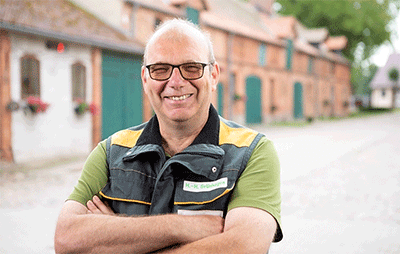
Hans-Heinrich Grünhagen, his wife, son, and 17 employees farm 1800 hectares of arable land in the Brandenburg district of Ostprignitz-Ruppin. In one of Germany's driest regions, the farm manages 300 hectares of organic farmland, while conventionally farming the remaining 1,500 hectares. The company also provides a range of services in the region through its contracting business. Grünhagen, originally from Lower Saxony, has long relied on highly technological, modern arable farming, and is continually striving to develop his operations. The farm has already established flowering areas, buffer strips, and set-aside areas.
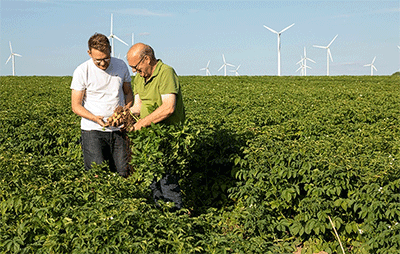
In recent years, as the upcoming generation change approaches, Grünhagen has been increasingly focused on implementing sustainable agriculture practices that go beyond their previous measures. Saving water is a top priority, and the farm has now permanently greened the areas that have been cultivated without plowing for decades, using the strip-till method. The objective is to build up humus, prevent wind erosion, and store more water in the soil. Grünhagen's pioneering spirit, data-driven decision-making, and commitment to passing on a future-proof agriculture to his son make him a trailblazer of sustainable agriculture in his region.
O.H.R. Ackergut GmbH & Co KG
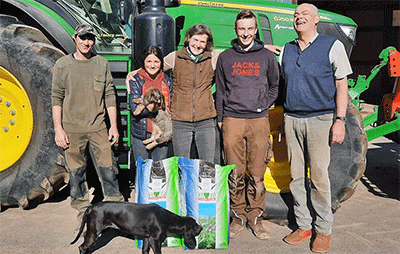
Anette Seifert-Ruwe manages O.H.R. Ackergut GmbH & Co KG, a farming community in the districts of Gießen and Wetteraukreis, where they carry out modern conventional arable farming with a focus on Z-seed multiplication on over 600 hectares of arable land. Their land management benefits from their deep understanding of nature, and aims for sustainable production of crops. Seifert-Ruwe actively promotes insects, birds, and small game by intelligently positioning flowering strips and bird feeders for partridges. She also cooperates with regional partners and participates in expansion of cost-intensive nature conservation projects.
Gut Klockenhagen
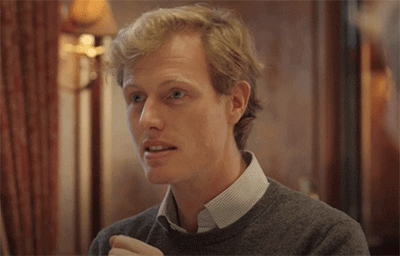
The Klockenhagen estate, which covers more than 2400 hectares in the district of Vorpommern-Rügen near the Darß, manages its arable and grassland areas ecologically. Suckler cow husbandry and bull fattening, as well as sows and pigs, are all managed in an organic environment. The farm's philosophy prioritizes animal welfare and environmental protection. Modern, data-based technology and cooperation with the "Blooming Landscape Network" support these values. This modern organic farm operates scientifically and is continuously exploring further development and diversification. It operates in a completely closed cycle.
Rittergut Lucklum
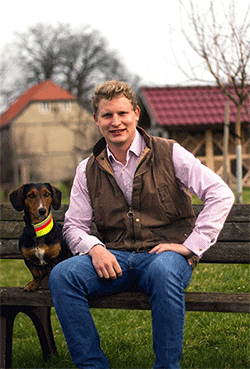
Since 2019, Güterverwaltung Reinau has been managing its arable land around Lucklum according to Naturland standards. The farm produces sustainable products for the regional market, including eggs and meat from dual-purpose pasture-raised chickens, as well as meat from Dexter cattle and game. In addition to their self-produced eggs, products from neighboring farms are also available at two Regiomats. The farm strives for a closed nutrient cycle, the preservation and promotion of soil fertility, and species-appropriate animal husbandry. The farm achieves these goals through 16-year crop rotations, the planting of hedgerows and flower strips, beneficial insect promotion, catch crops, undersowing, and agroforestry systems. To learn more about Güterverwaltung Reinau's sustainable farming practices, visit their website at www.reinaubewegt.de.
Hansenhof KG
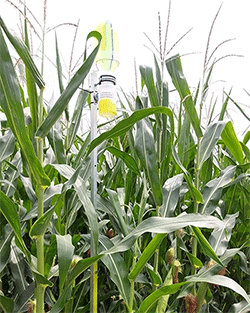
Cord Meyer manages the Hansenhof, a mixed farm covering 280 hectares of farmland in the district of Rotenburg. The farm is conventionally managed and works closely with hunting and nature conservation associations to promote biodiversity. To achieve this, coordinated field edge and flower strip management are carried out. The farm actively contributes to creating habitats for insects, birds, and game through the placement of old wood stores, rock piles, and flower strips in the landscape. These structures provide important refuges and food sources for wildlife, helping to maintain a healthy and diverse ecosystem.
Gut Dinkelburg
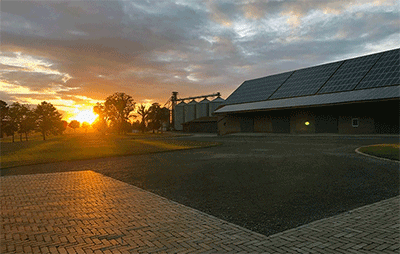
Edited version: Gut Dinkelburg, a farm owned by the Count of Westphalen since 1599, is situated in the district of Höxter at the foot of the Desenberg on the edge of the Warburger Börde. Sebastian Borgwald and his team constantly strive to implement and optimize sustainable cultivation practices, use their own raw materials for energy production and feeding, and maintain their buildings and natural areas. The farm covers over 500 hectares on three sites with a diverse crop rotation.
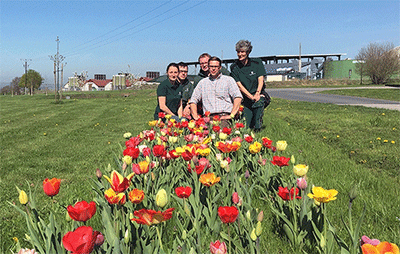
In December 2011, a biogas plant was installed to supplement the farm, which is fed with silo maize, chicken manure, and pig slurry. The plant was expanded and optimized in the fall of 2018 to generate renewable energy on demand as part of the plant flexibilization. The farm also fattens chickens in four modern barns for a regional fresh poultry slaughterhouse that adheres to strict animal welfare standards. The roof surfaces on the farm are covered with photovoltaics, generating "green" electricity that is fed into the grid. Regional apples are grown under the "Gutes aus Hessen" seal according to organic standards on approximately 60 hectares for a central German cider press house.
Gertrudenhof Fuchs
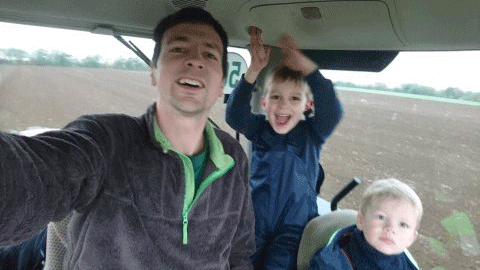
Tobias Fuchs is in charge of managing approximately 400 hectares of farmland situated in the Mayen-Koblenz district. The Gertrudenhof, his mixed farm comprising arable farming and pig fattening, rears its pigs using locally grown grains and sells them entirely within the region under the "EIFEL Plus Schwein" brand. The farm utilizes modern data-supported technology for decision-making, including the accurate application of fertilizers and pesticides, to ensure effective management. Emphasis is placed on soil-conserving cultivation techniques, diverse crop rotation, and the intelligent positioning of flower strips, contributing to insect protection and the overall aesthetic of the farm's landscape.
Gersdorfer Agrarproduktion und Handel e.G.
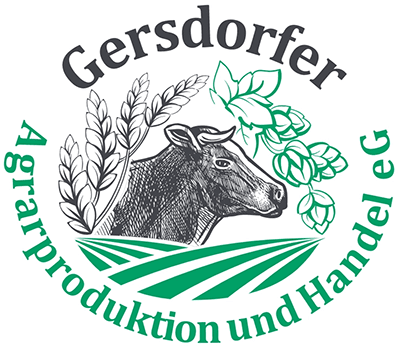
Thomas Thiele is the farm manager of Gersdorfer Agrarproduktion und Handel e.G. in the district of Central Saxony. The experimental mixed farm has over 900 hectares of farmland and dairy cattle, and is committed to implementing a diverse crop rotation, while preserving soil fertility. The farm's management practices emphasize a modern and precise approach to fertilization and crop protection. In addition, Gersdorfer Agrarproduktion und Handel e.G. is always looking to further develop regionality and sustainability. The farm strives to serve as a model for others in the agriculture industry, shaping the future of farming.
LBG Groß-Germersleben
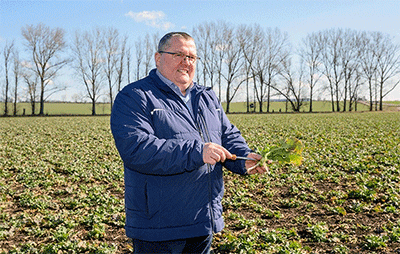
Sven Borchert manages the Groß Germersleben GBR agricultural community, which practices state-of-the-art arable farming on around 1700 hectares of fertile land in the Magdeburger Börde region. The farm emphasizes precision farming and resource-conserving cultivation techniques. Additionally, Sven Borchert is a strong advocate for species conservation and collaborates with environmental associations and scientists on various projects aimed at making modern agriculture more nature-positive. This unique combination of high productivity and a pronounced understanding of nature has made LBG Groß Germersleben GbR a model farm for modern agriculture.
Gut Hardegg
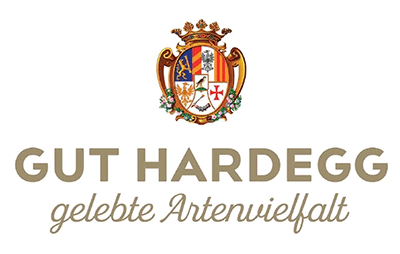
Maximilian Hardegg, the owner and farm manager of Gut Hardegg in Lower Austria, practices contemporary integrated arable farming on 2200 hectares of land. For Graf Hardegg, environmental protection and the renaturation of the landscape are top priorities. The company motto of "living biodiversity" reflects their commitment to promoting sustainable agriculture in harmony with field and song birds, insects, small game, and living soil. With a deep understanding of hunting, the estate views nature as a large whole and promotes it through diverse management adjustments and measures based on a specially developed "4 Pillars Model." At Gut Hardegg, agricultural productivity, nature and environmental protection work in harmony, making this a showcase farm for this integrated approach. More information is available at https://guthardegg.at/.
Steinhof Suter
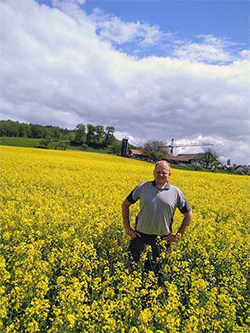
Michael Suter manages Steinhof, a mixed farm located in the canton of Aargau that focuses on arable farming and dairy farming. The farm places great importance on animal welfare and sustainability, and regularly participates in cooperation and research projects. Regional marketing and communication with the public are central to the farm's philosophy. The family farm employs three full-time staff members and offers an apprenticeship. All field work is done in-house, with the exception of sugar beet and silage corn harvesting, which is contracted out. For more information, please visit: www.suter-steinhof.ch.
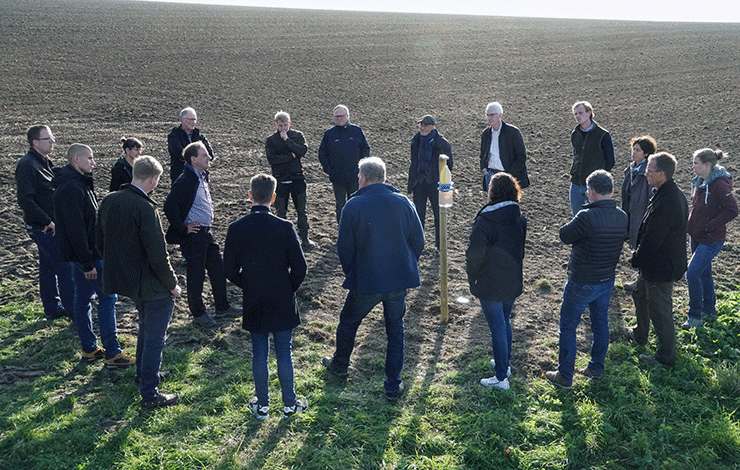
Mayerhofer Agrar
Georg Mayerhofer is the manager of a family-owned agricultural business in the Lower Bavarian district of Passau. The farm's mainstays are climate-adapted and diverse arable farming, pig fattening (soon to be adapted to Naturland criteria) and generation of biogas-powered electricity. Honored with the CeresAward as farmer of the year 2017 in the "arable farmer“ category, Mayerhofer aims for soil fertility, especially humus build-up. He develops concepts for erosion control and diversity and tries to bridge society and agriculture. Mayerhofer belives that consumers should have the chance to acquire basic knowledge about agricultural activities and gain insights into a modern agricultural business. Currently, he is in the process of converting nearly 350 hectares of his land to organic farming.
Bittl‘sche Gutsverwaltung
Farm manager Hubertus von Künsberg manages 400 hectares of farmland in the district of Kronach in Upper Franconia, using modern technologies. Along with focusing on agricultural productivity, he also a beekeeper, hunter, and conservationist. He is considered a prime example of a modern farmer due to his demonstration farm for water-conserving management and nature conservation activities. As the community's nature and environmental protection officer, he places great importance on insect and bird protection and has regular interaction with society and authorities.
.
Siegl & Co. Schweinemast KG
Georg Siegl manages a family-owned agricultural business in the Lower Bavarian district of Landshut, with traditional arable farming, pig fattening, and a biogas power plant as the mainstays. He emphasizes sustainable and intelligent crop production on his 500 hectares of arable land and actively participates in the "HeimatLandwirte" initiative, educating society about modern agriculture. Siege remains actively involved in a research project that he started on agriculture and groundwater protection in the Rottenburg Region. The farm from Lower Bavaria is now undertaking new projects such as the conversion of animal husbandry and establishing a small direct marketing business.